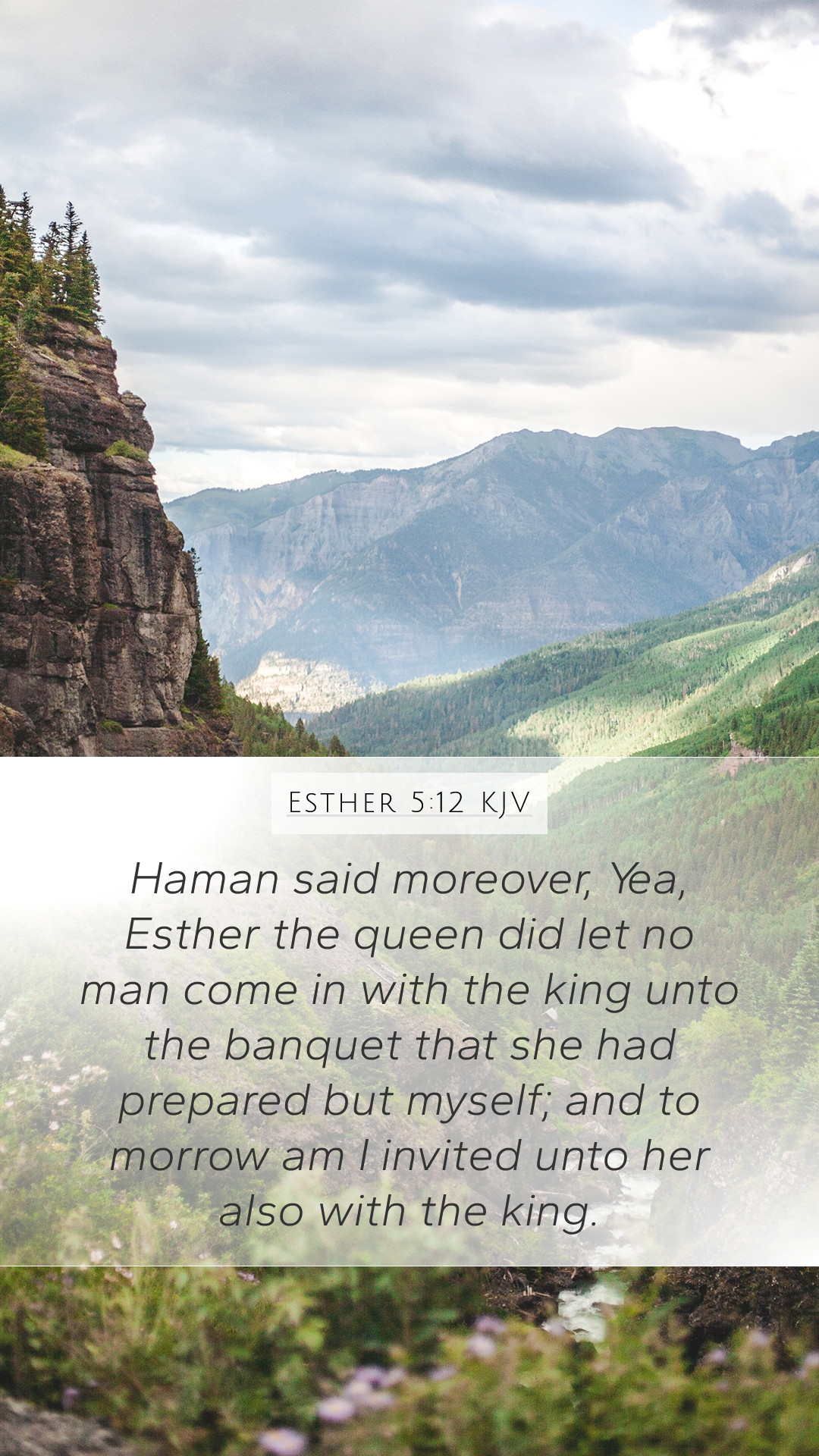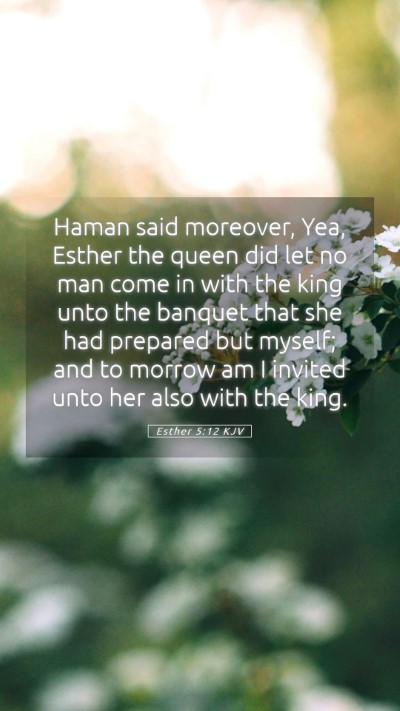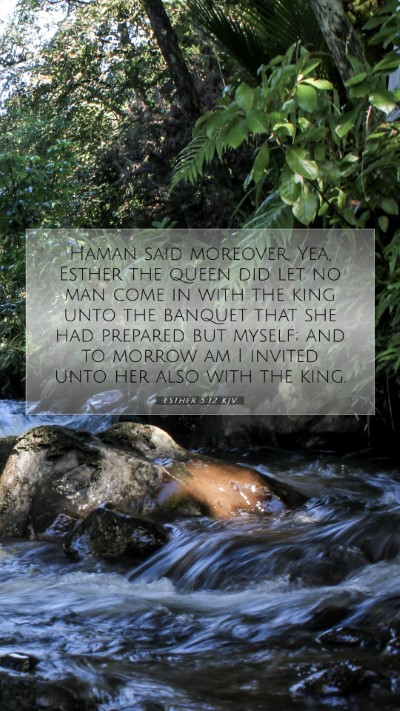Old Testament
Genesis Exodus Leviticus Numbers Deuteronomy Joshua Judges Ruth 1 Samuel 2 Samuel 1 Kings 2 Kings 1 Chronicles 2 Chronicles Ezra Nehemiah Esther Job Psalms Proverbs Ecclesiastes Song of Solomon Isaiah Jeremiah Lamentations Ezekiel Daniel Hosea Joel Amos Obadiah Jonah Micah Nahum Habakkuk Zephaniah Haggai Zechariah MalachiEsther 5:12 Meaning
What is the meaning of Esther 5:12?
Haman said moreover, Yea, Esther the queen did let no man come in with the king unto the banquet that she had prepared but myself; and to morrow am I invited unto her also with the king.
Esther 5:12 Bible Verse Meaning
Understanding Esther 5:12
Esther 5:12 states: "Moreover Haman said, 'Besides, Esther the queen did let no man come in with the king unto the banquet that she had prepared but myself; and to morrow am I invited unto her also with the king.'" This verse captures a moment of Haman's pride and self-confidence, illustrating the dynamics of power, influence, and the underlying tension that permeates the narrative of the Book of Esther.
Bible Verse Meanings
The Bible verse meanings can be drawn from public domain commentaries such as those by Matthew Henry, Albert Barnes, and Adam Clarke. This analysis delves into the various facets of the verse and its implications within the story:
- Matthew Henry’s Commentary:
Henry focuses on Haman's arrogance and the way it blinds him to the perils brewing under the surface of his favor with the king and queen. Haman’s boastfulness about being the only one invited to Esther’s banquet reflects both his ambition and naivety, as it sets the stage for his eventual downfall. Henry also notes the providence of God at work, highlighting that while Haman is reveling in his honor, God is orchestrating events that will lead to his demise.
- Albert Barnes’ Notes:
Barnes analyzes the situation surrounding Haman’s statement, emphasizing the contrast between his sense of superiority and the precarious situation of the Jewish people. By elevating himself, Haman becomes a symbol of pride in opposition to the humility demonstrated by Esther. Barnes points out that Haman’s exclusion from the king’s favor will soon change, leading to a reversal of fortune.
- Adam Clarke’s Commentary:
Clarke expounds on the significance of Haman sharing this detail with others. This is indicative of his manipulation of information to maintain control and influence over those around him. He highlights how this moment foreshadows the greater conflict that Haman will soon face as his schemes unravel. Clarke also suggests the importance of Esther’s bravery in the midst of such danger, contrasting it with Haman’s cowardice masked by inflated pride.
Bible Verse Interpretations
Interpreting Esther 5:12 requires a careful look at the literary and historical contexts of the verse. It can be seen as a reflection of the political intrigue and the nature of human ambition within the empire, as well as the divine hand that guides the fate of the Jewish people. The verse also presents a pivotal moment where Haman's confidence may serve as a precursor to a significant downfall.
Biblical Exegesis
The exegesis of this scripture highlights themes of power, pride, and divine providence. Haman’s statements reveal his self-centered nature while signaling the toxic environment of the court. This juxtaposition sets the stage for understanding the work of God in preserving His people. The narrative arc here does not just serve to critique Haman’s character but serves a larger purpose within the story of Esther.
Historical Context of the Verse
Historically, this verse is situated during the reign of King Xerxes of Persia, depicting the complex relationships between courtiers in the royal court and the plight of the Jews facing extermination. Understanding the power dynamics and socio-political landscape of Persia aids modern readers in grasping the significance of Esther’s bravery and Haman’s tragic hubris.
Cross References
- Esther 3:2 - Haman’s rise to power and the decree against the Jews.
- James 4:6 - A reminder that God opposes the proud but gives grace to the humble.
- Proverbs 16:18 - Pride goes before destruction, and a haughty spirit before a fall.
Application of Esther 5:12
This verse speaks to modern audiences about the dangers of pride and the illusion of security that accompanies worldly success. It serves as a reminder to remain humble and vigilant, as outcomes can shift unexpectedly. The significance of understanding Scripture is paramount when considering how to apply stories from the Bible to one’s daily life and interactions.
Conclusion
In summation, Esther 5:12 is a rich verse with deep meanings that speak to the human condition and divine orchestration. Engaging with this text through various commentaries enhances the Biblical study insights one gains and encourages readers to think deeply about their own lives within the context of faith and humility.


